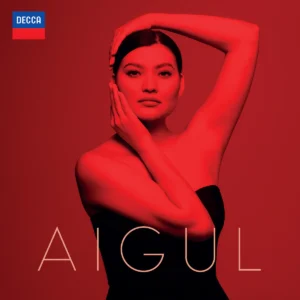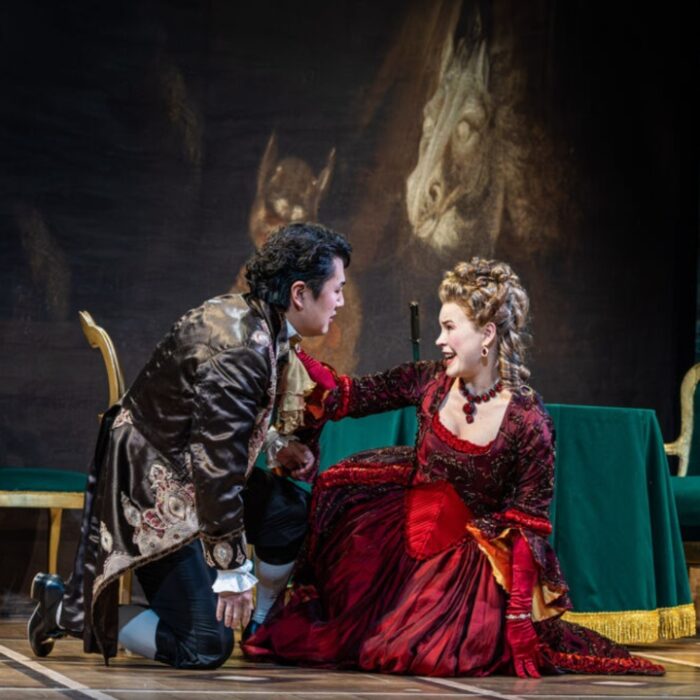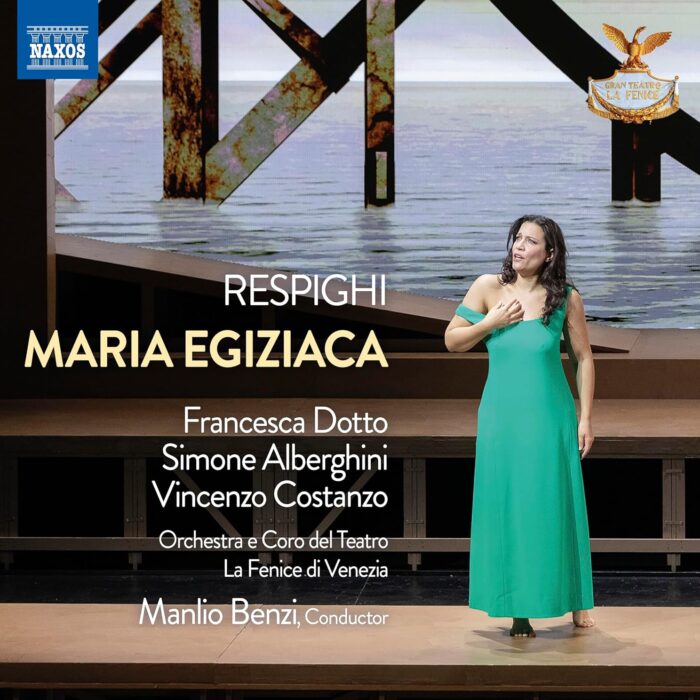
CD Review: Aigul Akhmetshina’s Debut Album ‘Aigul’
By Francis MuzzuA debut album from the new darling of the opera world: Aigul Akhmetshina, the young mezzo soprano from Bashkortostan. While training with the Royal Opera House’s Jette Parker Artists Programme in London, Akhmetshina has performed the role of Carmen in Peter Brooks’ condensed version of Bizet’s opera and later understudied the titular role in the main house while performing the supporting role of Mércèdes. In 2018, in true “A Star is Born” style, she found herself stepping into the main role for three performances. She gained much publicity, not just because she scored such a triumph but because she was a twenty-one-year-old. Akhmetshina’s career rocketed.
She started sensibly with lighter Rossini and a selection of smaller roles, including Lola, Maddalena, Olga, Fenena. But now Carmen is her calling card – and in the last year Akhmetshina has led new productions of the opera at the Met, Covent Garden and Glyndebourne. So her solo album is timely and starts with the obvious – Carmen’s Habanera, Seguidilla and Card Scene. There is much to show why audiences are so excited by her. The voice is an astounding instrument: rich of tone, knitted perfectly between registers, colored evenly from top to bottom unless she decides to vary its hue, and capable of impressively precise coloratura. It is a Rolls Royce of mezzos – opulent and luxurious.
And this is sometimes a problem. Everything cruises along with such perfection that the surface gloss can lead to a lack of verve or personality. Akhmetshina’s Habanera is smooth and elegant but there is little sense of Carmen’s mercurial moods or lightness of touch – listen to Callas, who says a lot more with some simple verbal effects, leaning into “prends garde à toi” with a mocking smile: Akhmetshina misses such opportunities. She also adds a clumsy aspiration each time she sings “si tu ne m’aimes pas, je t’aime” adding an “H” before the “A”. And why is there a grace note on the first outing of that phrase? It shouldn’t appear until the second. Thankfully, Akhmetshina makes much more of the Seguidilla, relishing both music and text, and is musically scrupulous. She takes her head voice as low as she can but knows when a good fruity chest tone adds impact. Tenor Freddie De Tommaso makes little impression with his few words as Don José, going slightly sharp and with a catch on one note. Moving on, the Card Scene is impressive, perhaps the power of Akhmetshina’s voice best suiting the drama of the music, and the chest voice really booms on a D flat. She is aided by Elisabeth Boudreault and Kezia Bienek, who make the most of Mércèdes and Frasquita.
Charlotte in “Werther” is a great role for Akhmetshina, and she wiped an ailing Jonas Kaufmann off the stage at Covent Garden when she sang it there last year. Massenet’s dark orchestration suits the serious timbre of her voice, and the emotions smolder. There is much more of a sense of light and shade, though when she starts to read Werther’s letter, Charlotte’s emotional undoing, she doesn’t color the voice to reflect her development from reminiscence to distress but just gets louder.
Romeo, in Bellini’s “I Capuleti e i Montecchi”, is a role that Akhmetshina has sung just once in concert. Once over her opening “Ascolta” – which has no imperative punch but sounds as though she might be about to read a fairy story to the Bailli’s children in “Werther” – she is pretty perfect in “Se Romeo t’uccise un figlio”. The voice soars, particularly in the ascending phrases of the aria, and the cabaletta is excitingly decorated. She finishes with a thrilling top C, so it is a pity that she drops out of the few bars preceding it, (understandable onstage, less so in the studio). The Act two aria is equally convincing.
Rossini proves a great fit for Akhmetshina. Both Cenerentola and Rosina (“Barbiere”) display a different side to her personality – her lightness of touch with a smile to the tone – and she throws off some dazzling roulades and perfect runs. Variants are impressive, glancing up to a top C sharp at one point. Her Rosina is fun and manages to convey the spirit of a young woman who means business. A final offering is a traditional folk song in Russian from her homeland: a simple yearning for one’s roots, with a touch of homesickness. Akhmetshina gives it an earnest simplicity.
Daniele Rustioni conducts the Royal Philharmonic with due attention to his diva and some particularly light string playing, especially in “Carmen”. The recorded sound is excellent, with great balance between voice and orchestra. It is a really good album, but not quite a great one – that will come with more experience. It will be interesting to see where Akhmetshina goes next.



